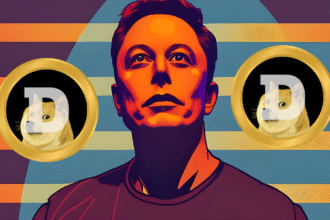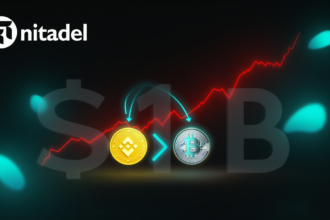BNB Smart Chain (BSC) has officially implemented a major update that makes it one of the cheapest blockchains in the industry.
On October 1, 2025, all validators and builders on BSC adopted the new minimum gas price of 0.05 Gwei, per an announcement from the BNBChain X handle.
This reduces BNB Smart Chain gas fees to approximately $0.005, a positive development that could significantly boost on-chain activities and adoption of BSC.
The development means faster and cheaper transactions for users. It would also provide a stronger platform for developers to build solution-driven decentralized applications (dApps).
For the BSC ecosystem as a whole, the 50% drop in gas fees strengthens its position as one of the most competitive, cost-effective blockchains globally.
Why Low BSC Gas Fees Matter
Gas fees refer to the amount paid to execute a transaction on a blockchain network. It plays a critical role in the adoption rate of a blockchain.
In the past, validator decisions to cut BSC gas fees have had powerful effects. In April 2024, gas dropped from 3 Gwei to 1 Gwei, cutting median fees by 67%. In May 2025, fees fell again from 1 Gwei to 0.1 Gwei, pushing median costs down 75% from $0.04 to $0.01. The resultant effect was that daily transactions surged 140%, surpassing 12 million at that time.
With the recent slashing to 0.05 Gwei, fees are now halved again, making BSC competitive with fast-growing chains like Solana, Cardano, Avalanche and Base among others.
At the time of writing, crypto wallets, centralized exchanges (CEXs), and trading platforms have yet to implement this new BSC gas pricing. However, according to the announcement, these platforms are expected to adopt the 0.05 Gwei minimum gas fees in the coming weeks. This alignment will be critical to keeping BSC the most attractive destination for onchain activity.
Balancing BSC Gas Fees and Validator Rewards
Notably, some community members worry that lower fees could hurt validator rewards or cause infrastructure strain.
However, as of October 2025, BSC operated at less than 30% capacity and has been verified to handle state data three times. Meanwhile, validator staking annual percentage yield (APY) remains healthy above 0.5%, supported by higher transaction volumes and BNB’s strong price performance.
This principle guides the network’s future as stated by the team: “As long as staking APY remains above 0.5%, BNB Smart Chain should strive to have the lowest gas fees possible.”
The project’s long-term goal is even more ambitious. It is to reduce gas to about $0.001 per transaction upon proposal approval by the BSC community. Achieving this would put BSC on par with the most competitive blockchains while keeping it a preferred choice for traders, builders, and liquidity providers.
Potential Impact on BSC Adoption and BNB Price
The 0.05 Gwei gas fee comes shortly after BNB, the network’s native token, hit an all-time high above $1,000. Historically, reduced network costs have attracted more developers, boosted network activity, and strengthened demand for BNB as the token powering transactions.
Lower BSC gas fees could, therefore, support BNB’s utility-driven demand, particularly as trading volumes dominate network usage. With more swaps, staking, and decentralized finance (DeFi) interactions happening on BSC, the long-term effect may be positive for BNB’s price stability and adoption.
However, its short-term price fluctuations remain tied to broader crypto market sentiment, where macroeconomic factors and regulatory clarity still play a bigger role. At the time of writing, BNB is trading for $1,037, up over 2% since the gas pricing change.






